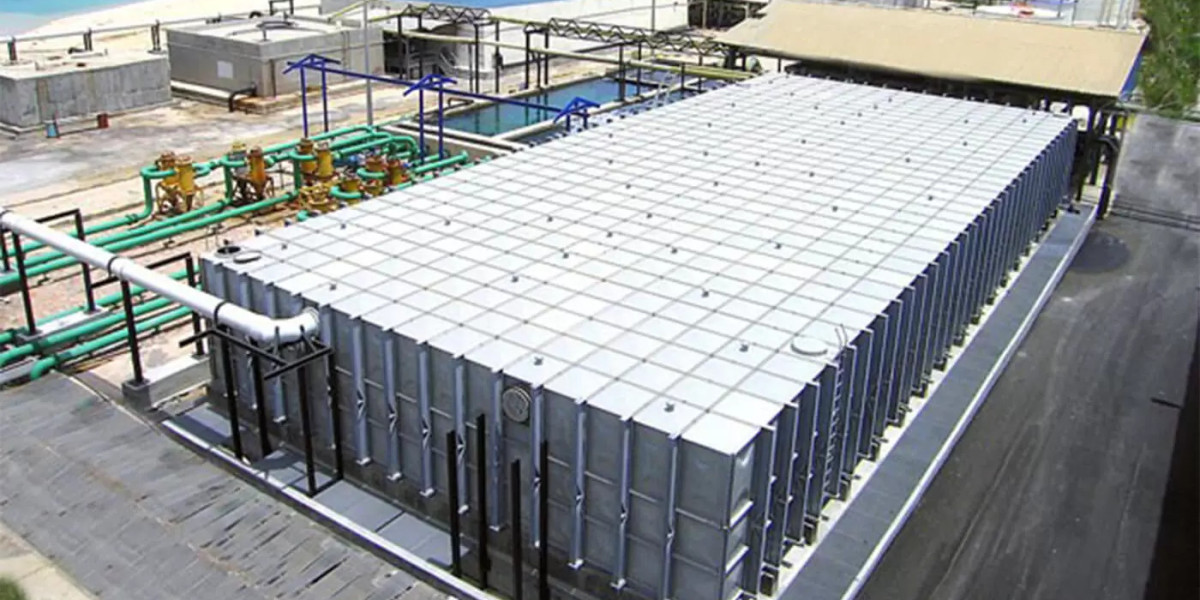Water storage tanks play a crucial role in ensuring a steady supply of water for various applications across homes, businesses, and industries. These essential systems help manage water resources efficiently, especially in areas prone to shortages or irregular supply. By investing in high-quality tanks, users can safeguard against emergencies and maintain consistent access to clean water. FTC Tanks specializes in providing top-tier solutions that meet diverse needs with reliability and innovation. Whether for daily use or specialized purposes, understanding the basics of these tanks is key to making informed choices.
Types of Water Storage Tanks Available
When exploring options, it's important to consider the different designs that cater to specific requirements in residential settings. Above-ground models offer easy installation and accessibility, making them popular for homeowners seeking straightforward solutions. Underground variants provide discreet storage without occupying visible space, ideal for properties with limited yard area. Vertical and horizontal configurations allow flexibility in fitting into various layouts, ensuring optimal use of available space. Each type comes with unique features that enhance functionality and durability over time.
Commercial environments often demand larger capacities to support operations like irrigation or processing. Modular systems enable scalability, allowing businesses to expand storage as needs grow without major disruptions. Portable units offer mobility for temporary sites, providing convenience during construction or events. Insulated versions help maintain water temperature, which is vital in climates with extreme weather variations. Selecting the appropriate type ensures seamless integration into daily workflows.
Industrial applications require robust tanks capable of handling high volumes and harsh conditions. Bolted steel structures provide strength and customization options for large-scale storage. Welded designs offer seamless construction, reducing the risk of leaks in demanding environments. Polyethylene models are lightweight yet resilient, suitable for chemical-resistant needs. These variations support critical processes in manufacturing and resource management.
Benefits of Advanced Materials in Tanks
Modern materials have revolutionized the construction of water tanks, offering superior performance compared to traditional options. Fiberglass reinforced plastic stands out for its corrosion resistance and lightweight properties, making it a preferred choice for long-term use. This material ensures tanks withstand environmental stresses without compromising structural integrity. Users benefit from reduced maintenance costs and extended lifespan, enhancing overall value. Incorporating such innovations leads to more efficient and reliable water management systems.
In addition to durability, these materials provide hygiene advantages essential for potable water storage. Smooth interiors prevent bacterial growth, maintaining water quality over extended periods. UV protection features shield against sunlight degradation, preserving the tank's condition in outdoor installations. Thermal stability helps regulate internal temperatures, reducing energy needs for heating or cooling. Overall, advanced materials contribute to sustainable and cost-effective solutions.
Environmental considerations also favor these modern compositions, as they often include recyclable elements. Lower weight translates to easier transportation and installation, minimizing carbon footprints during setup. Resistance to chemicals allows safe storage of treated water without contamination risks. Enhanced impact strength protects against accidental damages in busy areas. Adopting these benefits aligns with eco-friendly practices while meeting practical demands.
Applications Across Residential, Commercial, and Industrial Sectors
In residential settings, water storage tanks ensure households have backup supplies during outages or peak demand times. Families rely on them for gardening, laundry, and drinking needs, promoting self-sufficiency. Integrating with rainwater harvesting systems maximizes natural resources, reducing utility bills. Custom sizes fit seamlessly into basements or attics, optimizing home layouts. This versatility makes them indispensable for modern living.
Commercial uses span hospitality, agriculture, and retail, where consistent water access supports daily operations. Hotels utilize large capacities for guest services, while farms employ them for irrigation efficiency. Restaurants benefit from reliable sources for cleaning and food preparation, maintaining hygiene standards. Office buildings incorporate them for fire suppression systems, enhancing safety protocols. These applications underscore their role in business continuity.
Industrial sectors demand high-performance tanks for processes like cooling, mixing, and waste management. Manufacturing plants use them to store process water, ensuring uninterrupted production lines. Mining operations rely on durable models for dust suppression and equipment washing. Energy facilities incorporate them for boiler feed systems, critical to power generation. Their adaptability to harsh conditions makes them vital in heavy-duty environments.
Maintenance and Longevity Tips
Regular inspections are essential to keep water storage tanks in optimal condition throughout their service life. Checking for signs of wear, such as cracks or discoloration, prevents minor issues from escalating. Cleaning interiors periodically removes sediment buildup, preserving water purity. Monitoring connections and valves ensures leak-free performance, avoiding water loss. Following manufacturer guidelines extends the tank's usability significantly.
Protective measures against external factors enhance durability in various climates. Applying coatings resists corrosion from moisture or pollutants, safeguarding the structure. Installing shades or covers mitigates UV exposure, preventing material degradation. Ensuring proper ventilation avoids condensation issues that could lead to mold. These steps contribute to sustained efficiency and safety.
Seasonal preparations help tanks withstand weather changes effectively. Draining and insulating during winter prevents freezing damages in colder regions. Summer checks focus on algae control through appropriate treatments. Adjusting water levels based on usage patterns maintains balance. Professional services from providers like FTC Tanks offer expert assessments. Proactive care ultimately reduces replacement needs.
Choosing the Right Provider for Your Needs
Selecting a reputable supplier ensures access to quality products tailored to specific requirements. FTC Tanks stands out with a commitment to excellence in design and customer service. Their expertise guides clients through selection processes, matching solutions to unique scenarios. Comprehensive warranties provide peace of mind for long-term investments. Partnering with experienced professionals guarantees satisfaction and reliability.
Evaluating certifications is crucial when deciding on a tank provider. Look for standards that confirm safety and compliance with industry regulations. NSF certified water tanks assure suitability for potable uses, meeting health guidelines. Fire tank options adhering to NFPA standards enhance emergency preparedness. These credentials reflect a dedication to quality and performance.
Customization options allow for personalized configurations that fit exact specifications. Providers offering modular designs enable future expansions without starting over. Material choices cater to environmental and functional needs seamlessly. Timely delivery and installation support streamline the acquisition process. Opting for versatile suppliers maximizes benefits across applications.
Future Trends in Water Storage Technology
Innovations are shaping the evolution of water storage tanks toward smarter, more efficient systems. Integration with IoT devices allows real-time monitoring of levels and quality via apps. Automated alerts notify users of potential issues, enabling quick responses. Sustainable materials derived from recycled sources reduce environmental impact. These advancements promise enhanced usability and conservation efforts.
Energy-efficient features are becoming standard in new designs, lowering operational costs. Solar-powered pumps facilitate off-grid operations in remote areas effectively. Advanced filtration systems embedded within tanks ensure purer water output. Modular expansions support growing demands without full replacements. Embracing these trends positions users at the forefront of resource management.
Regulatory changes are influencing tank designs to meet stricter environmental standards. Emphasis on water conservation drives innovations in leak-proof technologies. Community initiatives promote shared storage solutions for collective benefits. Research into antimicrobial coatings further improves hygiene aspects. Staying informed about these developments aids in future-proofing investments.
Conclusion
Water storage tanks represent a wise investment for securing essential resources in an unpredictable world. By choosing durable, efficient models, users can achieve peace of mind and operational stability. FTC Tanks offers comprehensive solutions that blend quality with innovation for all sectors. Prioritizing proper selection and maintenance maximizes returns over time. Ultimately, these systems contribute to sustainable living and business practices.








